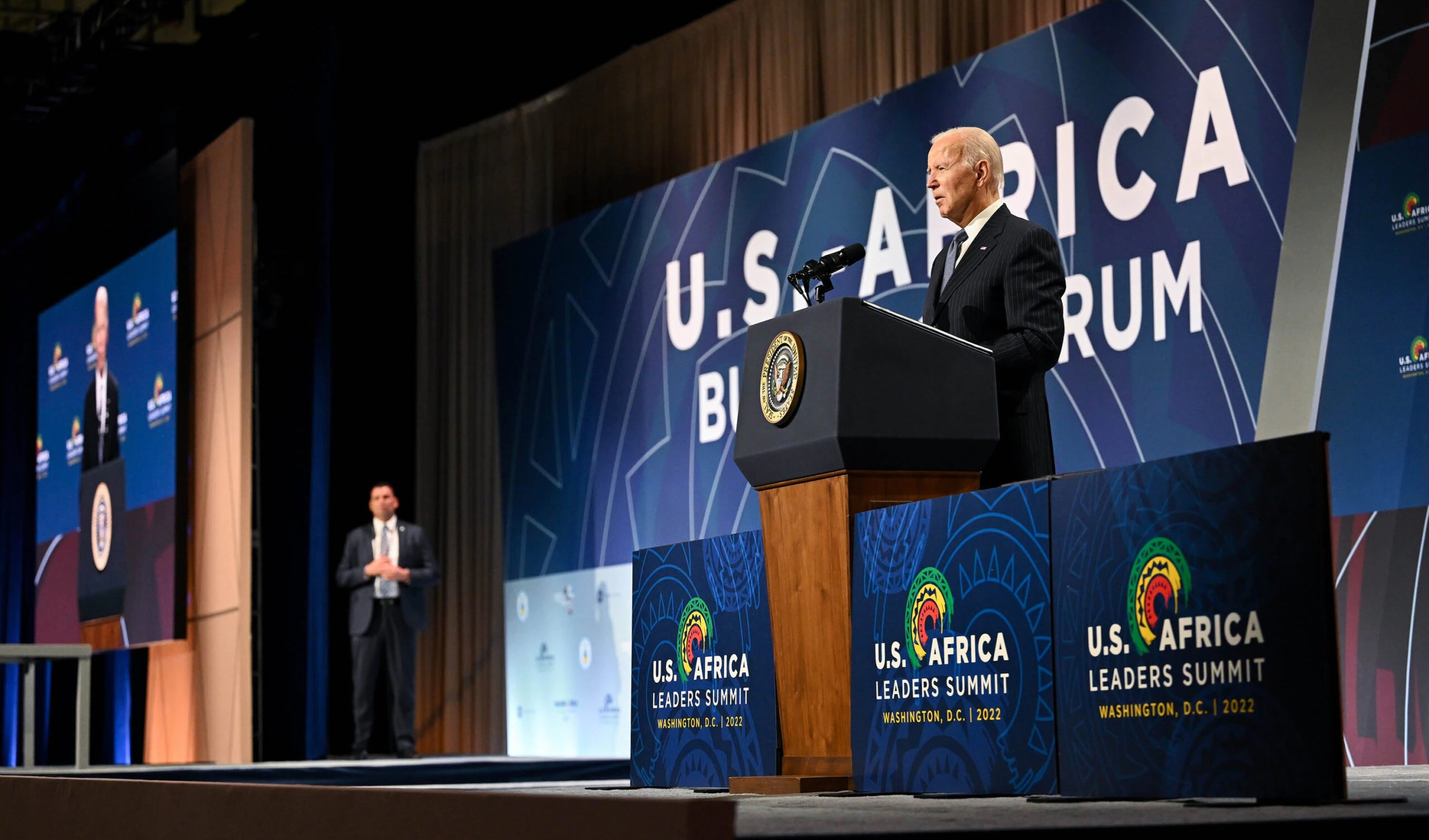Biden hosts US-Africa Summit, denies Russian regional influence
Biden is expected to support the African Union joining the G20 permanently and the UN Security Council's inclusion of a permanent member from Africa.
-

US President Joe Biden at the Summit (Department of State)
In the first time since 2014, US President Joe Biden is hosting 50 African leaders in Washington for the US-Africa Summit, intended to bolster future bilateral relations, and bigger-scale collaboration on trade, investments, the war in Ukraine, and the climate crisis.
This comes after some African nations refused to stand with the West against Russia and as experts state Biden’s greatest challenge is to prove to the African leaders that his country can be a reliable, long-term partner.
Cameron Hudson, a senior associate in the Africa Program at the Center for Strategic and International Studies, relayed: “They don’t see us as a long-term partner. They don’t see us as trusted. They see us as kind of unreliable. And this summit is the start of the effort to try to rewrite that narrative,”
The US is "going to have to do some smooching"
Hudson pointed out that one of the mistakes made by the Biden administration in this regard is that they haven't held talks or meetings with African leaders like previous presidents had done, in order to develop and build necessary and beneficial ties.
The Biden administration is laying out more than $55 billion in support over the three-day summit and on Wednesday welcomed US and African businesses, which promised more than $15 billion in trade deals.
Disregarding his own administration's performance, Biden told African leaders that good governance was critical to trade, pointing to the "core values that unite our people -- all our people, especially young people: freedom, opportunity, transparency, good governance."
Africa's reaction to the war in Ukraine influenced factors leading to hosting the summit, per expert statements.
Ebenezer Obadare, the Douglas Dillon senior fellow for Africa studies at the Council on Foreign Relations, stated: “There’s a part of me that sort of feels that the American policy establishment is shaken by the African reaction to the Ukraine conflict. And this seems to be an overture. This seems to be born out of a realization that things aren’t what they used to be,”
“I won’t believe it for a minute if anybody says it’s got nothing to do with Russia,” Obadare said. “How did we drop the ball to such an extent that we allowed China and Russia to gain so much hold in the continent that we’re actually scrambling?”
Obadare continued: “And if the United States is going to have to hold on to its allies in the region, it is going to have to do some smooching", as he continued that the US' attempt to build long-term connections with Africa is focused on Russia's interest in the region - which the White House denied.
National security advisor Jake Sullivan said on Monday that the US is “not putting a gun to anyone’s head. We believe that the war in Ukraine is a matter of principle,” adding: ”But we’re not imposing conditionality... We’re not approaching this from the point of view of coercing other countries,”
Read next: Weapons delivered to Ukraine 'beginning to filter' to Africa: Nigeria
Free and fair African elections
During the Summit, Biden is expected to support the African Union joining the Group of 20 (G20) permanently and the UN Security Council's inclusion of a permanent member from Africa.
Ambassador Johnnie Carson, former assistant secretary of State for the bureau of African affairs and previous ambassador to Kenya, Zimbabwe, and Uganda, will be appointed as the new special representative for the US-Africa Leaders' Summit implementation.
On Wednesday, a meeting about trade and investment will be held between the two sides, and is to include CEOs from more than 300 companies from both sides, followed by a meeting on 'free and fair African elections'.
Furthermore, a commitment by Biden to travel to Africa in 2023 is anticipated to take place.
Read more: South Africa: US sanctions against Russia will punish Africa

 4 Min Read
4 Min Read








